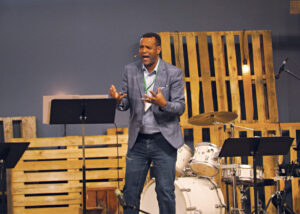Jean Vanier. Ravi Zacharias. John Howard Yoder. We add to this list in our own Canadian Mennonite church community every year. My Lenten reading in March was from Matthew 23, where Jesus chastises faith leaders who do not practise what they teach and who tie heavy burdens on the shoulders of others. Our accompanying devotional resource made the link to ministerial sexual misconduct and the damage done to the church.
I have been serving as moderator of Mennonite Church Eastern Canada for nearly three years. How many cases of ministerial sexual misconduct have we dealt with in those years, and are currently on our agenda at the regional church? Far too many, mostly historical, many from events in the 1980s.
I was a naive and trusting young woman in my 20s in the 1980s. It has taken me decades to name the behaviour I experienced in my first “real job,” and from my doctor, as sexual misconduct. It has taken courage for me to simply say out loud “me too,” as if I am breaking confidentiality or being selfish in naming this pain.
I am in awe of the survivors of ministerial sexual misconduct who are ready to hold their offenders to account. I am deeply grateful that survivors are willing to take these actions. As a church community, we offer our appreciation to these survivors and their advocates who long for truth and justice.
I am not a theologian or a minister. There are many who have thought through these issues and understand our theology much better than I. But as a church leader who thinks about policies in the context of our theology, I have questions.
How can there be so many historical cases that were not stopped or believed? What does ministerial accountability mean at all levels of the church? How do we address harm experienced by the whole church, in addition to the harm experienced by individuals and congregations?
As Anabaptists, our binational ministerial sexual misconduct policy assumes that misconduct occurs between individuals within a congregation. Our regional churches hold the ordination credentials of our ministers, setting expectations and providing resources, but it is the employer (congregations) who provides direct supervision. Congregations can also be naive, trusting and ill-equipped when it comes to sexual misconduct.
Ordination is for life. Who supervises and holds credentialled ministers accountable when a local congregation fails to do so, or ministers are not serving in a congregation? Today we give little space to denominational structures to wield authority. Those who come from a tradition of bishops are happy to have left behind their power.
Regional churches, after receiving a complaint about a minister, have policy to conduct investigations, figure out truth and decide on discipline. We do not mandate reconciliation between victims and offenders, which cannot be forced, and rarely happens in sexual-misconduct cases. What are the regional and nationwide churches’ roles in training, supervision and accountability pre-misconduct? What do repentance, reparation and reconciliation look like in the wider church post-misconduct? We have more work to do on these matters.
The main step now is to know the truth, to live with lament that such severe breaking of trust by people whom we have anointed to be our ministers has taken place. Many days I wish we had sackcloth and ashes. If survivors need 40 years to be able to let the truth be known, maybe we need to live with lament for another 40 years.
Arli Klassen serves as moderator of MC Eastern Canada.
Read more The Church Here and There columns:
Vaccine inequities
Connections
Year of wonders
Going to church
‘You must be a Mennonite!’







Leave a Reply
You must be logged in to post a comment.